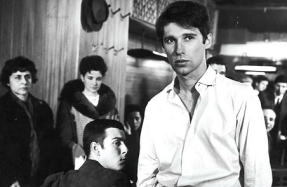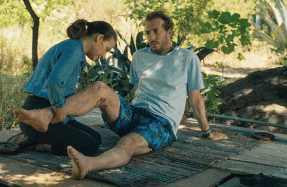Paulo Rocha’s Signs of Life

he interesting case of writer-director Paulo Rocha, whose first two features, (1963) and (1966), are finally widely available in English-subtitled editions after having been restored over seven years ago thanks to the initiative of Pedro Costa, illustrates that anything like a complete history of cinema—whose actual end date as a theatrical art form may be marked as 2020—is an incomplete project. Even for the most serious of non-Portuguese cinephiles, there’s little working knowledge of Rocha’s body of work. During his 50-year career as a director, his films rarely screened in North America; (1998) played at the New York Film Festival, while screened posthumously in 2014 at Art of the Real. The only major festival to regularly show his work was Locarno, and of his significant work, Cannes screened only (1982) and while Venice screened just (1987), his modern adaptation of , and his first nonfiction feature, (1984), an annotation to on the experiences of 19th-century author Wenceslau de Moraes in Japan, which Rocha made at the end of a nine-year period when he served as cultural ambassador at the Portuguese embassy in Tokyo. (Rocha was part of the first wave of Portugal’s cultural coming-out to the world at the end of the dark decades of Salazar’s corporatist-fascist dictatorship, which was ended by the April 1975 Carnation Revolution.) Only received anything close to an actual international commercial release, and even still, US distributors passed. Complicating matters was the decade that Rocha spent mostly in cultural diplomacy during arrived on the tail end of the post-Revolution wave of newly independent Portuguese cinema that marked, for example, Manoel de Oliveira’s most brilliant phase, along with other masters like Joao César Monteiro.
You’re reading a preview, subscribe to read more.
Start your free 30 days





